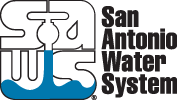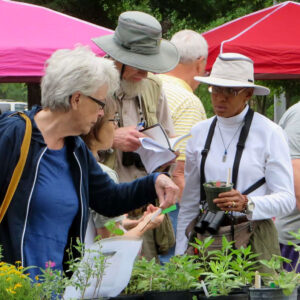SAWS continually lends its experience and know-how at a time when temperatures and the need for water continue to rise.
By Kimia Ahmadiyehyazdi, Intern at SAWS Conservation
As we celebrate the achievements of athletes from around the world with the 2024 Olympics, some of us may have been watching the rainy weather in the opening ceremonies with a touch of envy.
Water scarcity is an escalating crisis affecting numerous regions globally, demanding urgent attention to prioritize water conservation through innovative policies, technologies and individual efforts, even in seemingly water-abundant areas.
As a member of the Leading Utilities of the World, an exclusive global network of water and wastewater service providers, SAWS continually lends its experience and know-how at a time when temperatures and the need for water continue to rise. After all, SAWS is known in the industry for expertise in drought response, resource development and wastewater recycling.
Also, the Water Management Plan — the utility’s guiding supply-and-demand document that identifies existing and potential future water sources, to meet our customers’ needs for the next 50 years — is updated about every five years. It includes changes in population, water demand patterns, regulations, climate and water supply options.
Additionally, SAWS’ resources like the Outdoor Living Rebate and WaterSaver Landscape Coupon support these efforts for our customers, and the ongoing conversion to electronic meters will vastly improve leak detection.
Countries worldwide are also taking steps to improve water quality and conserve this vital resource.
- Singapore fulfills about 40% of the country’s total water demand by reclaiming wastewater to meet high standards for both industrial and potable use, thereby reducing reliance on imported water. Desalination plants further supplement the city-state’s freshwater supply during dry spells.
- Israel recycles 85% of wastewater and aims for 50% recycled water in agriculture. In addition, it has pioneered drip irrigation technology and implemented smart water metering systems to provide real-time data on water consumption. Israel also uses extensive desalination infrastructure and combats water scarcity with atmospheric water generation technology to extract moisture from the air through condensation.
- The Netherlands implements innovative water management strategies including water-sensitive urban design, flood control measures, and efficient irrigation techniques; utilizes advanced technology for water treatment and conservation.
- Iran tackles water scarcity with a multifaceted approach to blend of ancient wisdom and modern technology. In Kashan, traditional qanats sustainably draw groundwater underground to minimize evaporation and preserve water quality, while coastal provinces use desalination plants to convert seawater into freshwater. Tehran reduces its freshwater demand by recycling its wastewater for agriculture, while in Yazd, drip irrigation optimizes agricultural water use.
We can all make a difference at home, where simple actions can dramatically lower water usage: using water-efficient appliances, promptly fixing leaks, choosing native plants and implementing efficient and conservative irrigation strategies.
By integrating individual actions with systemic reforms, we can collectively safeguard our water supply for future generations while tackling global water challenges in a sustainable manner.
Together, let’s commit to a future where every drop counts.


